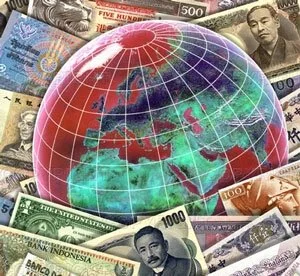WAR AS RACKET: SMEDLEY BUTLER 1935 BOOK
February 17, 2009 at 4:43 am | Posted in Books, Financial, History, Military, USA | Leave a commentWar is a Racket
by Smedley D. Butler (Author)
The Antiwar Classic by America’s Most Decorated Soldier
“I helped make Mexico, especially Tampico, safe for American oil intersts in 1914. I helped make Haiti and Cuba a decent place for the National City Bank boys to collect revenues in. I helped in the raping of half a dozen Central American republics for the benefits of Wall Street. The record of racketeering is long. I helped purify Nicaragua for the international banking house of Brown Brothers in 1909-1912. I brought light to the Dominican Republic for American sugar interests in 1916. In China I helped to see to it that Standard Oil went its way unmolested.” [p. 10]
The following quotations from the book are intended to summarize it:
“I helped make Mexico, especially Tampico, safe for American oil intersts in 1914. I helped make Haiti and Cuba a decent place for the National City Bank boys to collect revenues in. I helped in the raping of half a dozen Central American republics for the benefits of Wall Street. The record of racketeering is long. I helped purify Nicaragua for the international banking house of Brown Brothers in 1909-1912. I brought light to the Dominican Republic for American sugar interests in 1916. In China I helped to see to it that Standard Oil went its way unmolested.” [p. 10]
“War is a racket. …It is the only one in which the profits are reckoned in dollars and the losses in lives.” [p. 23]
“The general public shoulders the bill [for war]. This bill renders a horrible accounting. Newly placed gravestones. Mangled bodies. Shattered minds. Broken hearts and homes. Economic instability. Depression and all its attendant miseries. Back-breaking taxation for generations and generations.” [p. 24]
General Butler is especially trenchant when he looks at post-war casualties. He writes with great emotion about the thousands of tramautized soldiers, many of who lose their minds and are penned like animals until they die, and he notes that in his time, returning veterans are three times more likely to die prematurely than those who stayed home.
This decorated Marine, who understands and documents in detail the exorbitant profits that a select few insiders (hence the term “racket”) make from war, proposes three specific anti-war measures:
1) Take the profit out of war. Nationalize and mobilize the industrial sector, and pay every manager no more than each soldier earns.
2) Vote for war or no war on the basis of a limited plebisite in which only those being asked to bear arms and die for their country are permitted to vote.
3) Limit US military forces, by Constitutional amendment, to home defense purposes only.
“There is a great deal of wisdom and practical experience in this small book–Smedley Butler is to war profiteering what S.L.A. Marshall is to “the soldier’s load.” While a globalized world and the complex integration of both national and non-national interests do seem to require a global national security strategy and a means of exerting global influence, I am convinced that he is correct about the fundamentals: we must take the profit out of war, and restore the voice of the people in the matter of making war.
“War is a Racket” is Marine General, Smedley Butler’s classic treatise on why wars are conducted, who profits from them, and who pays the price. Few people are as qualified as General Butler to advance the argument encapsulated in his book’s sensational title. When “War is a Racket” was first published in 1935, Butler was the most decorated American soldier of his time. He had lead several successful military operations in the Caribbean and in Central America, as well as in Europe during the First World War. Despite his success and his heroic status, however, Butler came away from these experiences with a deeply troubled view of both the purpose and the results of warfare.
Butler’s central thesis is that regardless of the popular rhetoric that often accompanies warfare, it is waged almost exclusively for profit. He advances this argument in three decisive examples.
EXAMPLE 1: CORPORATE MILITARY PROFITS RESULTING FORM WAR
In an early version of “follow the money”, Butler provides pre- and post-World War I data on some of America’s leading corporations to demonstrate the surge in profits that they experienced from the war, often totaling several hundred percent. While some companies, such as Dupont, arguably produced goods that contributed directly to America’s military victory in 1918, others such as saddle manufacturers did not. Even when these companies failed to contribute directly to the war effort, they still managed to lobby the government to retrain or expand their contracts. Its as though powerful, well connected oil services company today were to contract with the government to supply oil to the military during a foreign campaign and then deliberately overcharge it.
EXAMPLE 2: INVESTING IN OTHER NATIONS’ WARS
Butler argues that the United States practically doomed itself to entering the First World War the moment it began lending money and material to the allies. Once the allies were faced with certain defeat, argues Butler, they approached American government and business officials and flatly told them that unless they were victorious they would not be able to repay their staggering debt. In the event that Germany and the axis powers won the war, they would have no motivation to assume and repay the allied debt to the United States. America entered the First World War, according to Butler, in order to guarantee the repayment of its massive military loans to the allies. No allied victory meant no repayment, which meant no profit. Thousands of American soldiers were killed or maimed, argues Butler, to protect corporate profits.
EXAMPLE 3: THE MILITARY AS A COROPORATE THUG
Based on his own service experience in Central America and the Caribbean Butler argues that most American military interventions in small countries were done in order to “clear the way” for American corporations to set up shop and commence pillaging. It would be as if the United States were to occupy an oil-rich nation and then start doling out “rebuilding” contracts to some of its largest and best-connected corporations.
WHO PAYS FOR WAR
Having focused on who profits from war, Butler then examines who pays the price. The answer, unsurprisingly enough is the average taxpayer and the young people who are either slaughtered in wartime or who return home physically and psychologically damaged. Sadly, Butler points out, once these young people are no longer useful they are ignored by their own government and are left to suffer without assistance. It’s as though a president were to employ a lot of rhetoric about supporting our troops while using them to occupy and oil-rich nation, but were to secretly slash their hazardous duty pay and veterans benefits.
THE SOLUTION: END WAR PROFITEERING
Butler’s solution to preventing the carnage and social injustices of war is to eliminate business leaders’ ability to make a profit from war or to avoid serving in it themselves. He also argues that those who put their lives at risk should have a say in whether or not to wage war. This may sound like a lot of idealistic, socialist nonsense, but thing about it. Would the United States have invaded an oil-rich nation if its unelected president had been forced to serve in the front lines as part of the process? Would business interests have supported the war if they never stood to profit from it? Probably not.
“War is a Racket” also contains other interesting factoids including General Butler’s successful prevention of a right-wing coup against President Franklin D. Roosevelt. Unfortunately, no one of General Butler’s caliber was able to prevent a similar coup from taking place in 2000.
General Butler also makes a persuasive case for the United States to remain isolationist and to avoid involving itself in the coming European war (This book was published shortly before World War II.). Using his considerable grasp of military logistics, Butler counters many of the prevailing arguments of his day that Hitler posed a direct military threat to the United States. Unfortunately, no one of General Butler’s caliber was available to counter a similar argument that right wing policy makers advanced about a tiny oil-rich nation in the Middle East posing a direct military threat to the United States.
To anyone who doubts the veracity or efficacy of this book, there is a humble but useful suggestion. Ask yourself who makes money off of war. Then ask yourself if they ever make the physical, mental, or fiscal sacrifices for war. Finally ask yourself who ultimately makes the sacrifices and pays the prices. Most people who favor war either profit from it, or are seduced by the idea of it.
General Butler’s book is a concise, and brilliantly argued treatise on the reality of war. Of course most people prefer a beautiful idea to harsh reality, and that is why propagandists and politicians are so successful.
Imagine one’s suprise now, after having learned that our brave and tough idol had confessed to being the best “enforcer” for big business there ever was! He then became a whistle blower of the highest order. Brave and honest men and women who attain some kind of fame on the world stage do not get to live too long in this world. Their outspokeness is extinguished as soon as people start listening. In General Butler’s case there was a glitch in the system. He rose to the heights in rank because of his courage, heart, and tenacity during times of WAR. They had no choice but to elevate him. He earned his unobstructed view of how the world works with blood, sweat, and tears. When he realized that he was just being used… All hell broke loose. His passionate essay in this book should be read by everyone. He tells it the way it was and the way it still is.
It’s going to be a while before someone else from so high-up steps “out of line” and talks. Can you imagine this happening nowadays? Not gonna happen. It seems that Generals are now chosen for political reasons.
This book is about the brave General who showed even more courage as a Civilian.”













